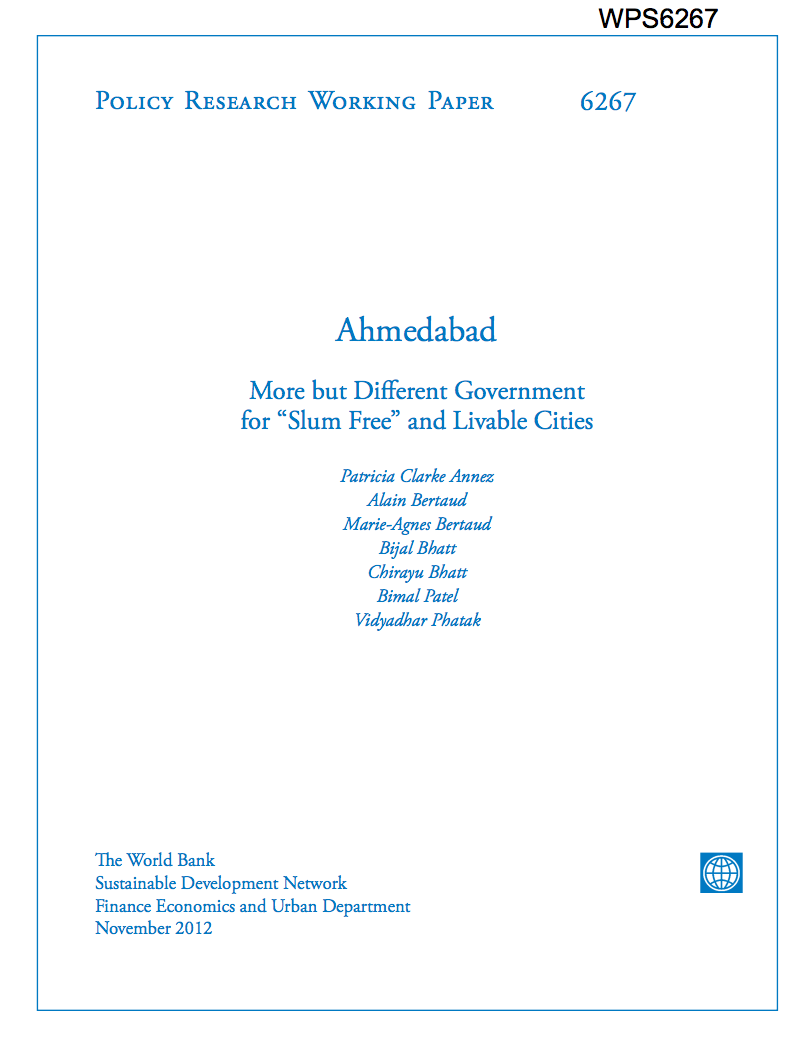The World Bank is a vital source of financial and technical assistance to developing countries around the world. We are not a bank in the ordinary sense but a unique partnership to reduce poverty and support development. The World Bank Group has two ambitious goals: End extreme poverty within a generation and boost shared prosperity.
- To end extreme poverty, the Bank's goal is to decrease the percentage of people living on less than $1.25 a day to no more than 3% by 2030.
- To promote shared prosperity, the goal is to promote income growth of the bottom 40% of the population in each country.
The World Bank Group comprises five institutions managed by their member countries.
The World Bank Group and Land: Working to protect the rights of existing land users and to help secure benefits for smallholder farmers
The World Bank (IBRD and IDA) interacts primarily with governments to increase agricultural productivity, strengthen land tenure policies and improve land governance. More than 90% of the World Bank’s agriculture portfolio focuses on the productivity and access to markets by small holder farmers. Ten percent of our projects focus on the governance of land tenure.
Similarly, investments by the International Finance Corporation (IFC), the World Bank Group’s private sector arm, including those in larger scale enterprises, overwhelmingly support smallholder farmers through improved access to finance, inputs and markets, and as direct suppliers. IFC invests in environmentally and socially sustainable private enterprises in all parts of the value chain (inputs such as irrigation and fertilizers, primary production, processing, transport and storage, traders, and risk management facilities including weather/crop insurance, warehouse financing, etc
For more information, visit the World Bank Group and land and food security (https://www.worldbank.org/en/topic/agriculture/brief/land-and-food-security1
Resources
Displaying 2096 - 2100 of 4907Data and Dogma : The Great Indian Poverty Debate
What happened to poverty in India in the
1990s has been fiercely debated, both politically and
statistically. The debate has run parallel to the wider
debate about globalization and poverty in the 1990s and is
also an important part of that debate. The economic reforms
of the early 1990s in India were followed by rates of
economic growth that were high by historical standards. The
effects on poverty remain controversial, however. The
Will African Agriculture Survive Climate Change?
Measurement of the likely magnitude of
the economic impact of climate change on African agriculture
has been a challenge. Using data from a survey of more than
9,000 farmers across 11 African countries, a cross-sectional
approach estimates how farm net revenues are affected by
climate change compared with current mean temperature.
Revenues fall with warming for dryland crops (temperature
elasticity of -1.9) and livestock (-5.4), whereas revenues
Housing Policy in Developing Countries : Conjectures and Refutations
This housing policy in developing
countries, conjectures and refutations article discusses
housing policy in developing economies. It examines recent
research findings in light of earlier arguments as to the
benefits of more market-oriented approaches. It also looks
at whether the recommendations of earlier work have been
refuted or developed in subsequent analyses and policy
measures. In particular, it reviews the empirical analysis
Safeguarding Tenure: Lessons from Cambodia and Papua New Guinea for the World Bank Safeguards Review
With a view to operationalizing the recently adopted Voluntary Guidelines on the Responsible Governance of Tenure of Land, Forests and Fisheries, this paper identifies gaps in existing World Bank safeguard policies with respect to tenure.
Ahmedabad : More but Different Government for “Slum Free” and Livable Cities
This paper analyzes real estate market dynamics over the past decade in the city of Ahmedabad, India, with a view to improving the living conditions of the large population living in slums. The paper combines census data, the National Sample Survey, and slum household surveys to review the demand side of the market. Satellite photography was used to estimate the production of both formal and informal housing over the past ten years. Analysis of the execution of the development plan for the Ahmedabad region and town planning schemes shows how the system of housing supply has evolved.








